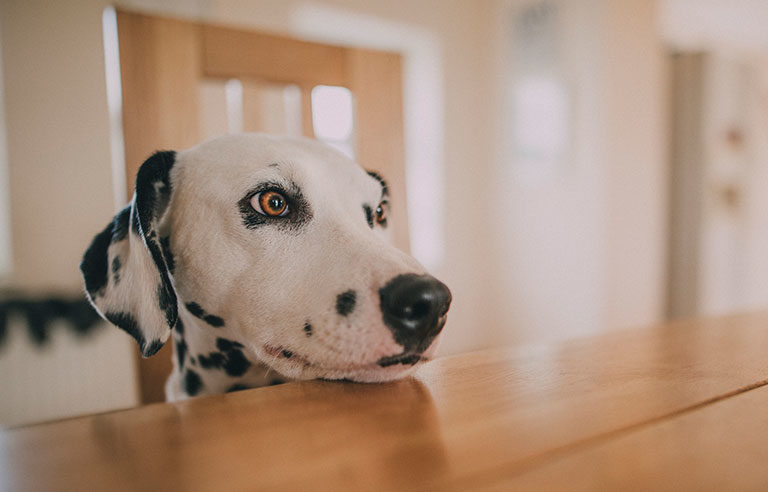Pets and ‘people food’ don’t always mix

We often think of dogs and cats as members of our families. For some pet owners, this means feeding them “people food” as a treat. After all, a little bit can’t hurt – can it?
“Food is love in a lot of households,” said veterinarian Adrienne Bautista. “But you never know when they’re going to get an upset tummy from it – or something worse.”
So, what foods should you avoid giving to your dog and cat?
Chocolate: Chocolate contains the alkaloids caffeine and theobromine, which in dogs and cats can lead to abnormal heart rhythms, seizures or, in extreme cases, death. The darker the chocolate, the more harmful it is.
“Cocoa, or baking cocoa, is the biggest offender,” said Jessica Vogelsang, a San Diego-based veterinarian who writes a blog on Pawcurious.com. “The toxic ingredients are more concentrated the darker the chocolate.”
If your pet eats chocolate, call your veterinarian. Vogelsang says knowing what type of chocolate was eaten and how much can help determine the right treatment.
Xylitol: You wouldn’t give your pet an artificial sweetener, would you? Experts say it happens quite often without owners even knowing.
Xylitol is a common ingredient in sugar-free baked goods, gums and candies; peanut butters; and jellies and jams. It can cause insulin to bottom out, Vogelsang said, leading to hypoglycemia and potential kidney failure in dogs. Health problems can come on in as little as 10 minutes.
“A lot of the [emergency] cases are dogs that have gotten into sugar-free gum,” Vogelsang said. “It doesn’t take much, so that’s why it scares me.”
Grapes and raisins: These foods have just come onto the radar for many veterinarians. Although they’re not toxic to all dogs and cats, and experts say more research is needed to pinpoint the cause, consumption can lead to fatal kidney failure in some pets.
“I have to admit, I used to give it to my dogs on a regular basis as snacks,” said Barbara Hodges, director of advocacy and outreach for the Humane Society Veterinary Medical Association. “At this point, you don’t want to give even a few raisins or grapes.”
Mushrooms: Eating mushrooms you buy at your local grocery store likely won’t make your pet sick, Hodges said. But it could lead them to also eat wild mushrooms they find growing outdoors, which is much riskier. The Centers for Disease Control and Prevention has discouraged wild mushroom foraging since a 2017 outbreak of illness in humans.
Onions, garlic and chives: Your dog or cat can easily get an upset stomach from these cooking staples. Even worse, because they contain biosulphate, these ingredients can damage red blood cells, Hodges said, leading to anemia. This is especially true for cats. “Their red blood cells are a little more fragile,” Bautista said.
Nuts: The crunch and texture can be enticing, but the high-fat and high-oil content of nuts can lead to vomiting, diarrhea, obesity and pancreatic issues. Plus, they’re a choking hazard. Macadamia nuts are even toxic for dogs, Hodges said.
Other no-nos: Cannabis products and alcohol (toxicity danger), fried or fatty foods (pancreatitis), and raw salmon (risk of fish parasites) are other items to avoid giving to your pet.
Post a comment to this article
Safety+Health welcomes comments that promote respectful dialogue. Please stay on topic. Comments that contain personal attacks, profanity or abusive language – or those aggressively promoting products or services – will be removed. We reserve the right to determine which comments violate our comment policy. (Anonymous comments are welcome; merely skip the “name” field in the comment box. An email address is required but will not be included with your comment.)
